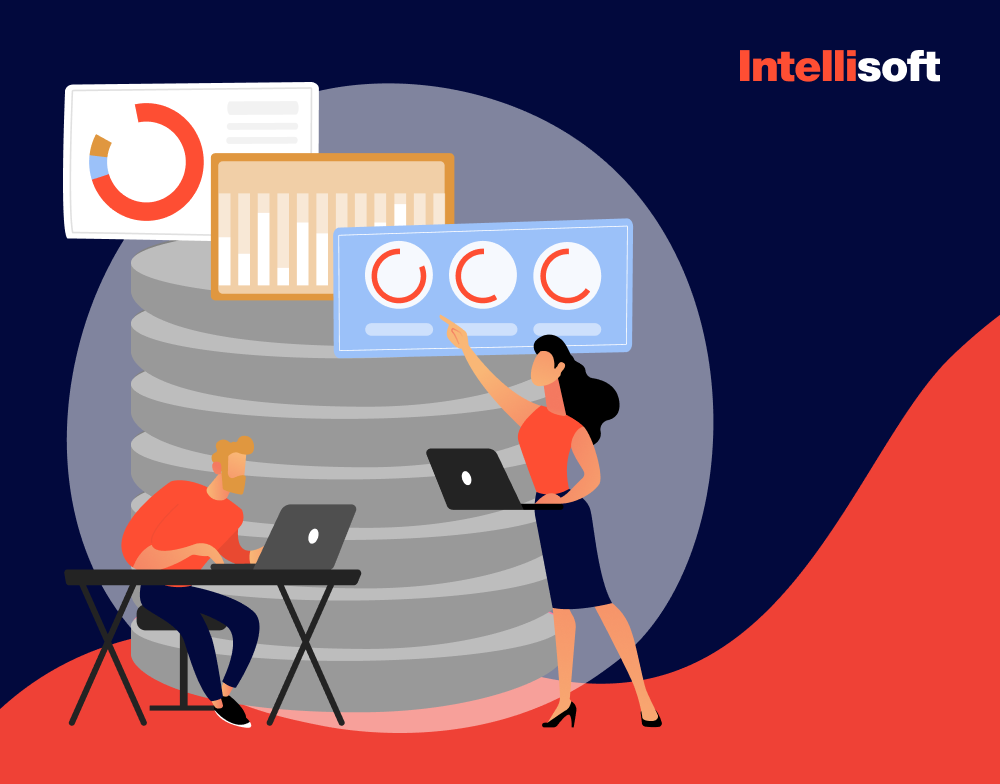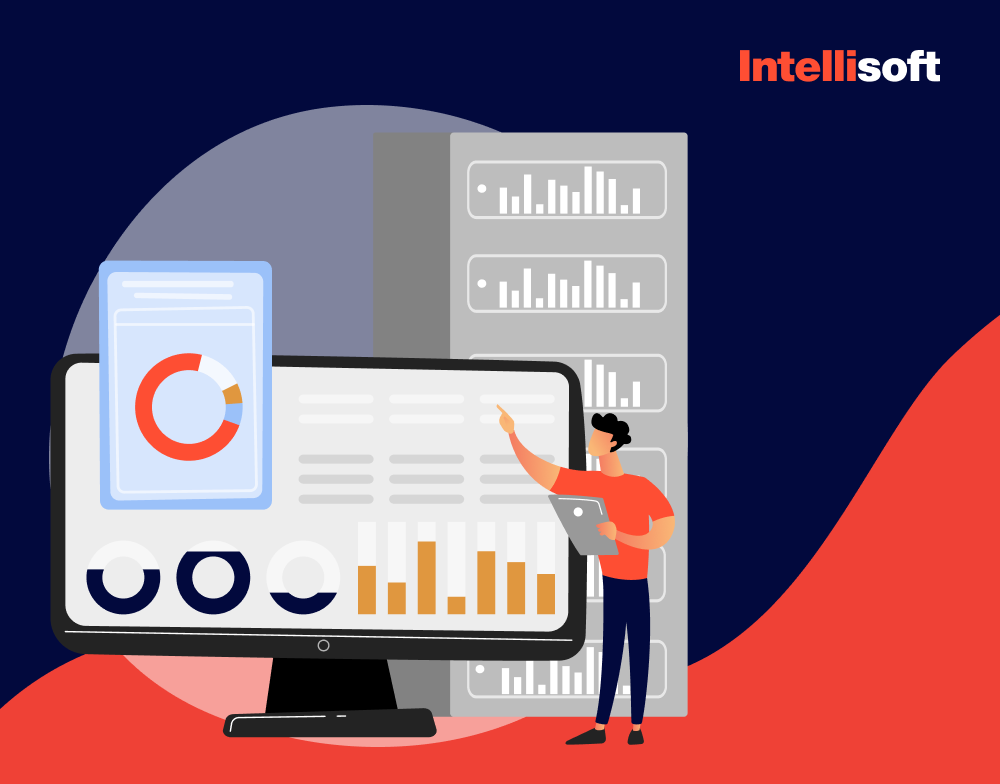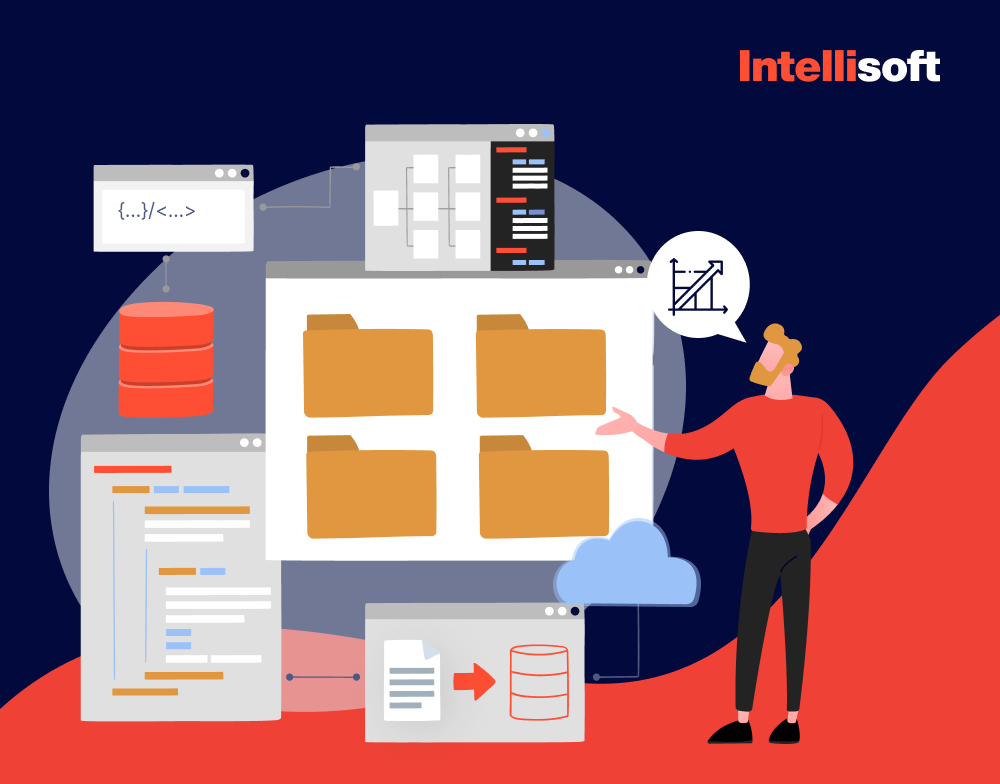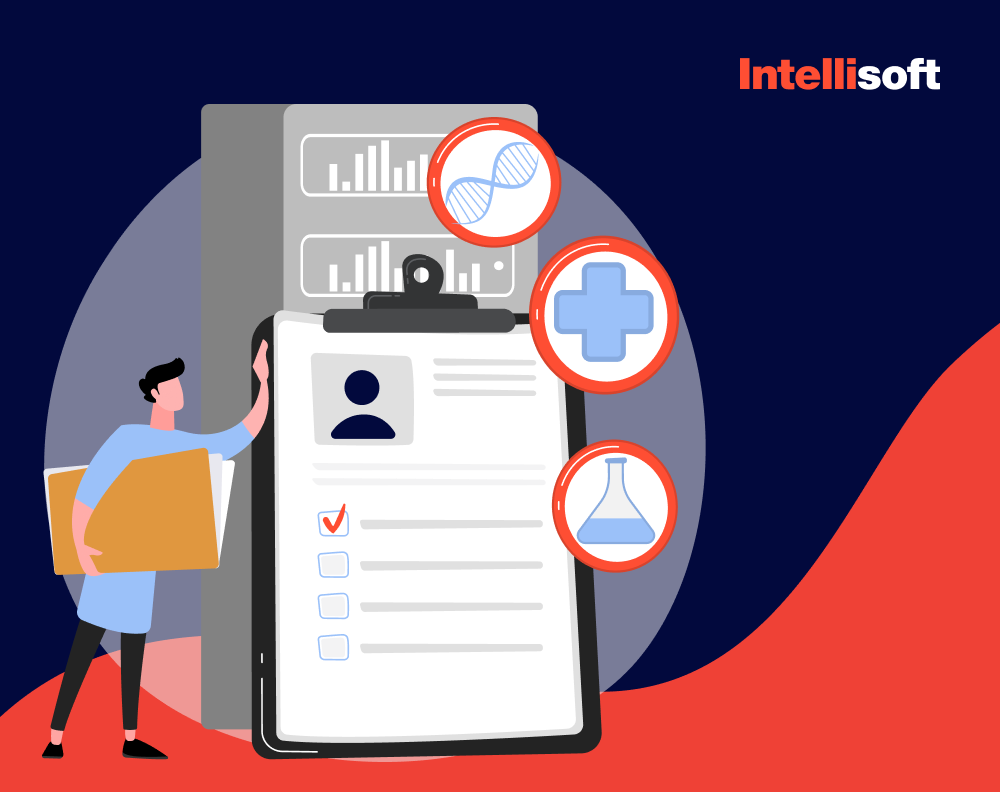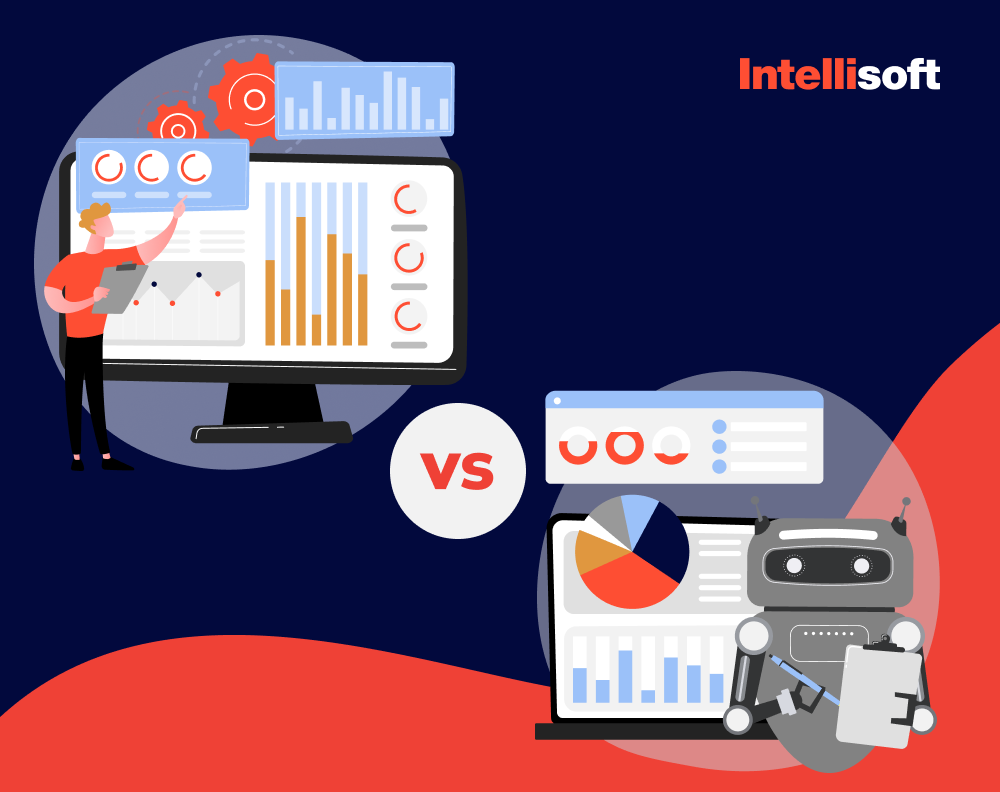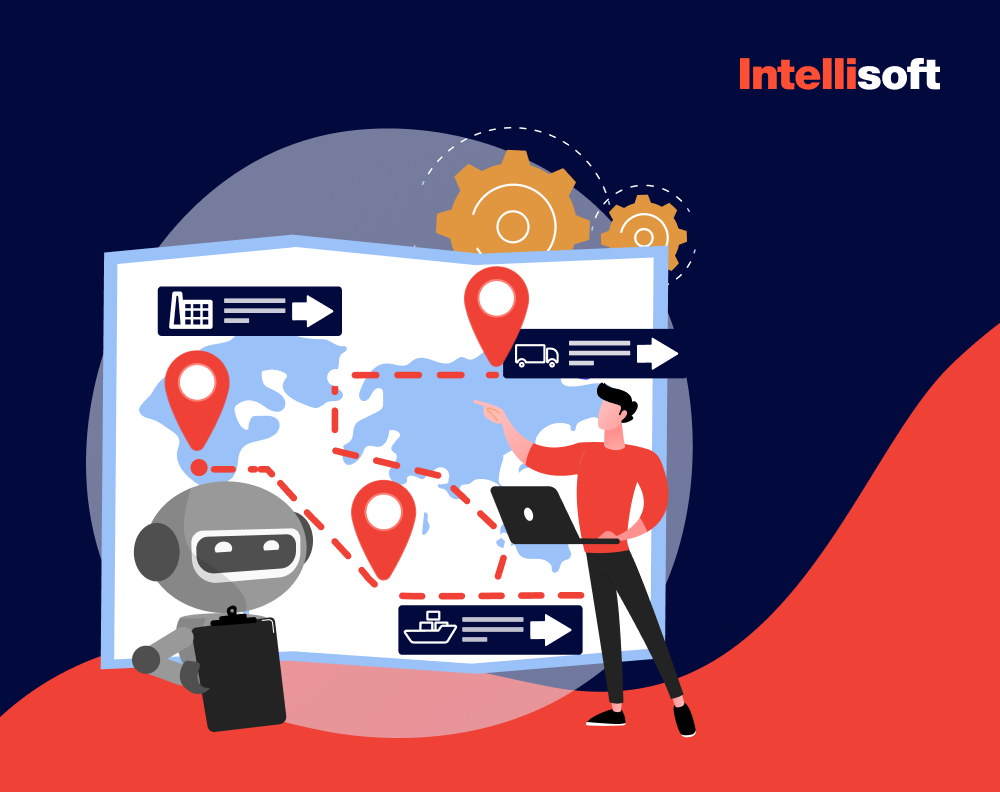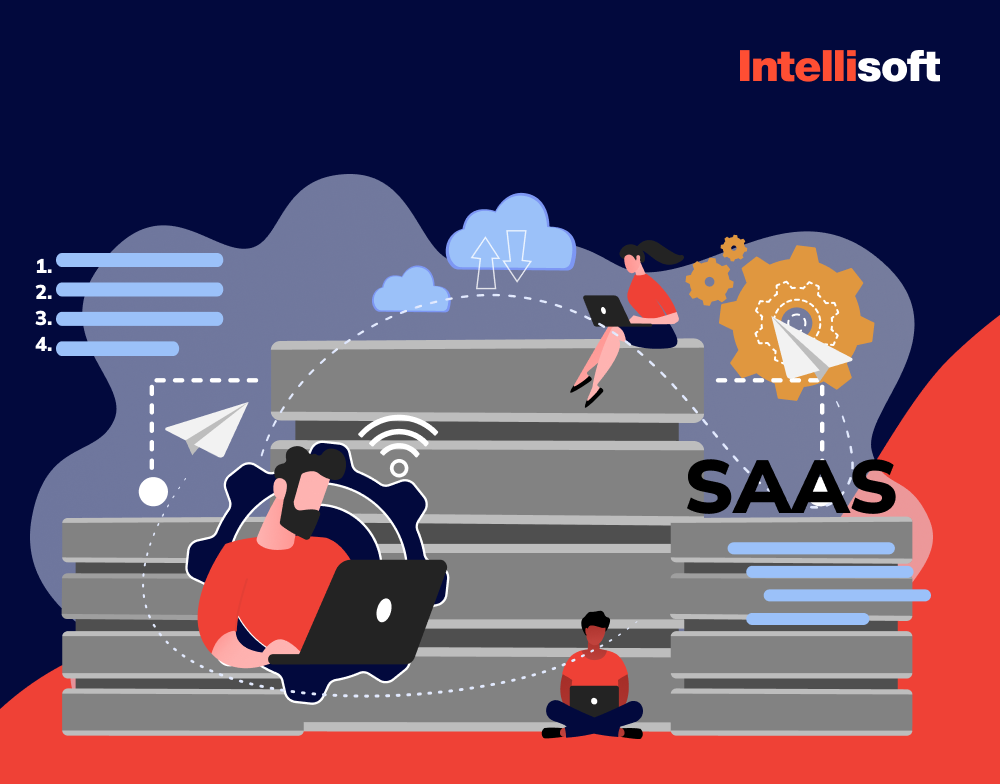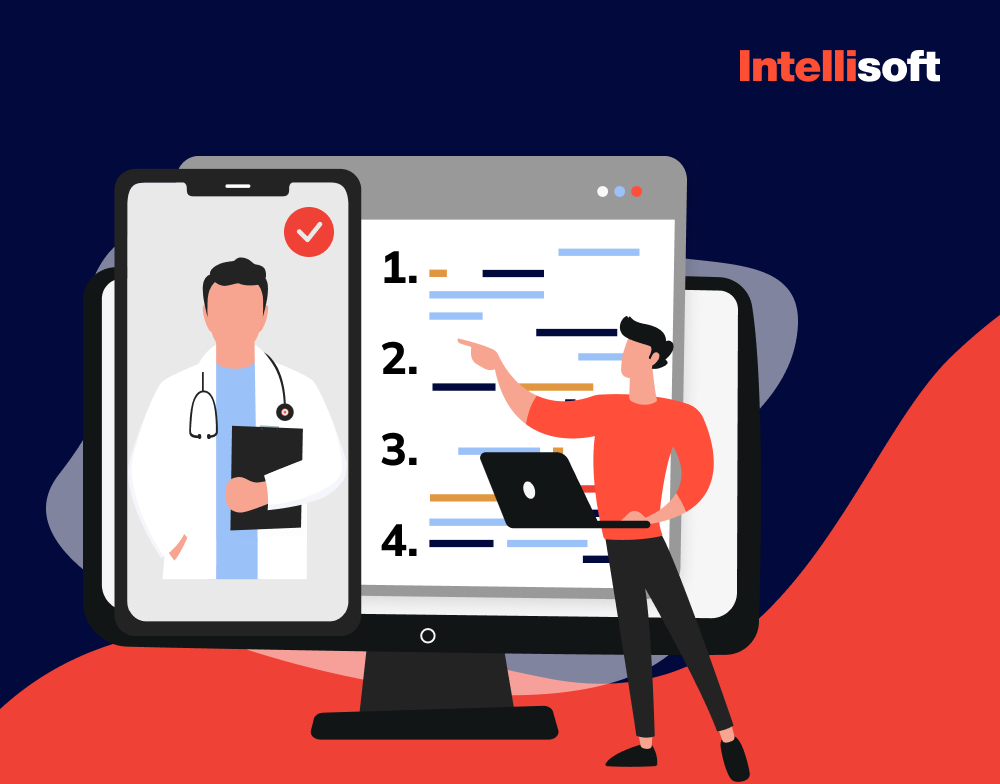In a perfect world, you know the whereabouts of your belongings and never lose anything because all your things have GPS tracking. What if we used the same system in business, fleet management in particular, to control numerous vehicles at the same time? It would not just be convenient, but incredibly financially beneficial. A real-time GPS tracking system can do just that and more.
The taxi and fleet management industries already benefit from real time GPS vehicle tracking, so it’s time for the automotive business owners to join the race. But is this investment truly worthwhile? Can a tailored GPS tracker align with both budgetary constraints and operational needs?
Join Intellisoft as we navigate the terrain of GPS tracking, uncovering its potential for businesses and delving into the secrets of crafting a customized solution that ticks all the boxes.
Table of Contents
What Is a GPS Tracking System and How Does It Work?
A GPS (Global Positioning System) tracking system is a sophisticated network of satellites, ground stations, and receivers designed to pinpoint the precise location of objects or vehicles equipped with GPS receivers. At the heart of this system lies a constellation of orbiting satellites, constantly beaming signals down to Earth. These signals are intercepted by GPS receivers installed in vehicles, which then calculate their exact position based on the data received from multiple satellites.
When satellites send signals about an object’s location and the time it was sent, the GPS receiver in the vehicle picks up that information. It calculates the distance to each satellite based on the time the signals reach the receiver.
The magic doesn’t stop there. In addition to determining location, a real time vehicle tracking system can provide a wealth of other data, including speed, direction, and altitude. This information opens up a world of possibilities for fleet managers, allowing them to monitor vehicle movements in real-time, optimize routes, and ensure timely deliveries.
Why Is Real Time GPS Vehicle Tracking So Important?
In the modern world of fleet management, real time vehicle tracking is not just an option anymore; it’s a necessity. GPS provides fleet managers with instant insights into the whereabouts of their vehicles, and this level of visibility allows for more informed decision-making regarding route planning, vehicle assignments, and resource allocation.
Moreover, businesses can use real-time information to streamline their operations, minimize idle time, and significantly improve productivity. Customer expectations these days are also sky-high, and real-time GPS tracking allows businesses to meet customer expectations and provide them with up-to-the-minute updates about the status of their deliveries.
Vehicle GPS Tracking System Architecture
![]()
Real time vehicle tracking system architecture has two main parts; an in-vehicle device unit and a tracking server unit.
The first part consists of a GPS module, GSM module, and microcontroller ARM LPC2148. It is installed in the vehicle and provides information about its location, fuel consumption and level, battery status, and speed.
What Are the Benefits of Using Real Time GPS Vehicle Tracking Software
Look at the GPS tracking software as your powerful ally. Here are the benefits of real-time GPS tracking:
![]()
Better Asset and Vehicle Security
Unfortunately, theft of fleet units and assets is common, severely affecting the company’s budget. One primary way to prevent that and protect your assets is by using live vehicle tracking software.
With this feature, companies can deter theft and unauthorized usage by vehicle tracking live. In case of theft, real-time tracking facilitates quick recovery and minimizes losses.
With a live vehicle tracking system, you can build a geofence, defining which routes are safe and dangerous and shouldn’t be traveled. If your vehicle crosses the geofence, the system will send the vehicle’s exact location, speed, and direction, making it easier to find.
You can also combine your live fleet tracking system with GSM, Wi-Fi, and connected sensors to detect unauthorized access to your vehicle by tracking how long and when the engine is running.
Optimized Delivery Routes
One of the main benefits of using live fleet tracking software is that you never have to worry about routes; the system builds and optimizes them automatically, making the delivery time faster and lowering fuel costs.
How does the system do it? The live vehicle tracking app collects data about the vehicle’s location and compares it to corresponding points on a map, analyzing and depicting traffic conditions and road availability. As a result, it is possible to rebuild routes swiftly in case of accidents or traffic jams and follow the best routes for quick deliveries.
The live GPS vehicle tracking system also helps avoid excess idling time and depreciation of mechanical parts of vehicles as it gathers information about mileage covered. If there’s anything wrong with the vehicle – the company will receive alerts.
Enhanced Customer Experience
Customers expect transparency and reliability in their service experiences. GPS real time vehicle tracking software allows businesses to provide real-time updates to customers about the status of their deliveries. Whether notifying customers of estimated arrival times or proactively addressing delays, real-time tracking enhances the customer experience by fostering trust and satisfaction.
Must-Have Vehicle GPS Software Features
If you want to develop custom vehicle live GPS vehicle tracking software, the set of features will depend on your specific needs and goals, but some features are a must if you want your solution to optimize your processes and help you stay competitive. Here’s what you should include in your solution:
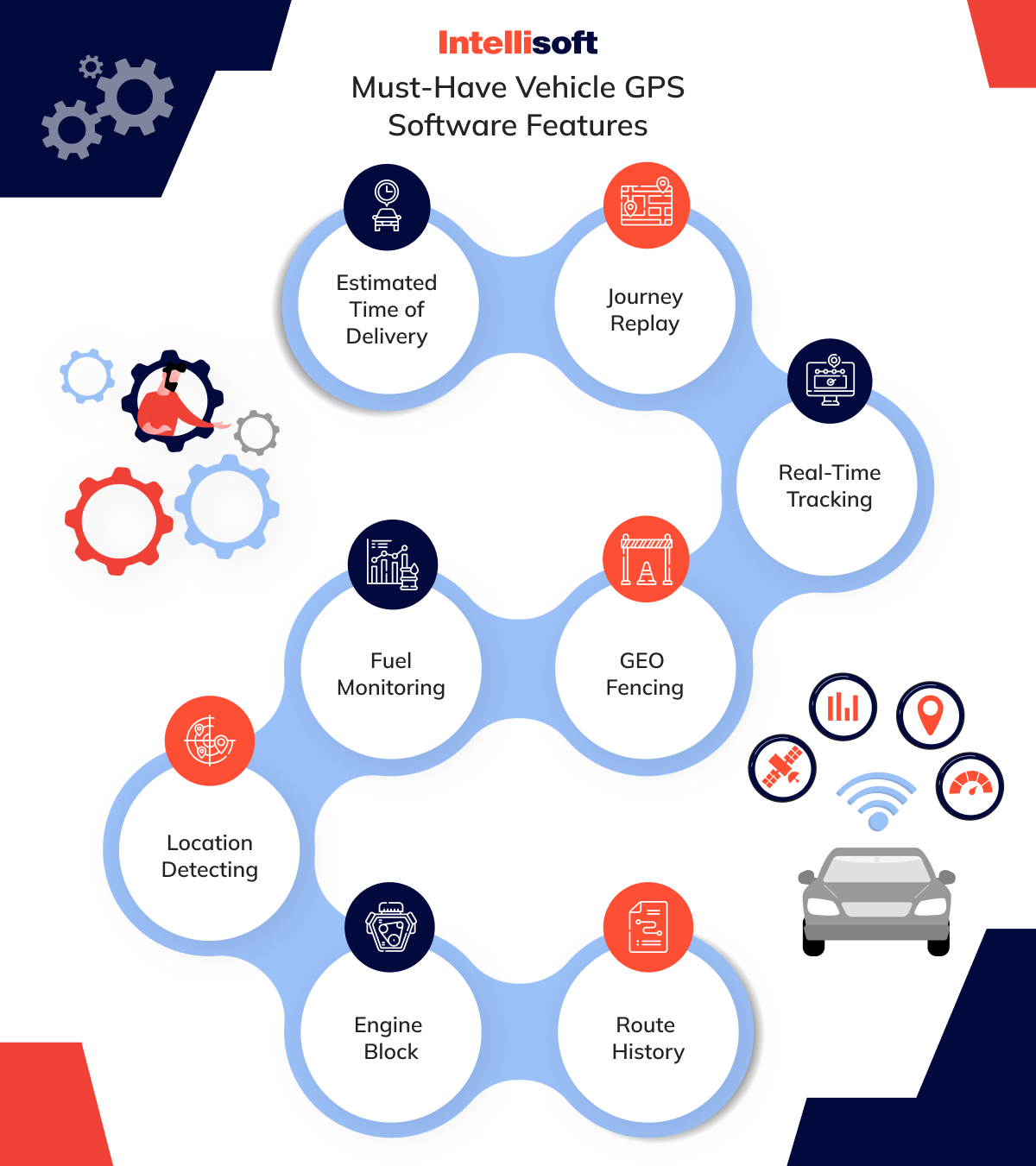
Estimates Time of Delivery
Fleet management is a complex process; it is not simply about managing your drivers. You must manage multiple vehicles simultaneously and track their schedules, locations, and conditions. You need to estimate the delivery time accurately to meet customer expectations and ensure the goods are delivered on time. A live vehicle tracking app with this feature calculates estimated arrival times based on real-time data, allowing businesses to provide customers with reliable delivery windows.
Journey Replay
Journey replay is an essential feature that allows drivers and managers to review past journeys to see when and where the truck stopped, check the vehicle’s speed throughout the entire journey, and gain valuable insights into driver behavior and route efficiency. By replaying journeys, managers can identify areas for improvement and optimize future routes accordingly.
Real-Time Tracking
Do you want to see where all your vehicles are in real-time? Add a real-time tracking feature to your live vehicle tracking systems. This way, you’ll be able to receive updates about vehicles’ locations, track deliveries, and respond to unexpected events such as traffic congestion or route deviations.
GEO Fencing
With this feature, you can create digital fences on a map to control where vehicles are supposed to go and what areas they are prohibited from entering. Alerts are triggered when vehicles enter or exit these predefined areas, enabling managers to monitor compliance with designated routes or locations. Geo-fencing enhances security, facilitates route optimization, and enables proactive fleet operations management.
Fuel Monitoring
This feature allows you to check the vehicles’ fuel levels and consumption. You can also check drivers’ habits for aggressive driving that accelerates fuel consumption, and work on improving driving behavior to cut costs. It is also possible to identify fuel theft and unauthorized usage.
Location Detecting
Location detection capabilities enable businesses to pinpoint the exact whereabouts of vehicles precisely with the help of a real time GPS tracking device spy car vehicle tracker. Whether vehicles are in urban areas with tall buildings or remote regions with limited GPS coverage, advanced location detection ensures accurate tracking under diverse conditions.
Engine Block
This feature allows you to immobilize vehicles remotely in case of theft or unauthorized access. Whether you’re a fleet operator, manager, or vehicle owner, you can conveniently disable the ignition via web or mobile vehicle live tracking devices, ensuring the vehicle remains inoperative until manually unblocked. Users can easily activate or deactivate the ignition block feature with simple steps, offering seamless control over vehicle operation.
Route History
You can download and view reports in XLS, PDF, CSV, and TXT formats, gathering information about driver names, driving hours, stopovers, fuel consumption, distance traveled, etc. By accessing historical route data, fleet managers can analyze driving patterns, identify recurring routes, and optimize future journeys for efficiency and cost-effectiveness.
When to Develop a Custom GPS Tracking Software and When to Use SaaS?
You’re at a crossroads, pondering whether you should go for a custom GPS tracking software or stick to a SaaS one. How do you make the right choice? Let’s explore.
Develop Custom GPS Tracking Software When
A custom live GPS vehicle tracking device should be your choice because of these factors:
- Unique Business Needs. The existing solutions could be unable to address your business needs and offer specific features you require. Customization allows you to address unique requirements and integrate the software seamlessly into your existing systems.
- Scalability and Growth. Do you have long-term scalability goals? Then, your best choice is a custom solution that can accommodate future growth and evolving needs. Custom GPS solutions offer greater flexibility and can be adapted to scale with your business as it grows.
- Data Security and Compliance. Industries with stringent security and compliance requirements, such as healthcare or finance, may opt for custom GPS tracking software to maintain control over sensitive data.
Use SaaS When
Here’s when SaaS automatic live vehicle tracking is a better option:
- Cost-Effectiveness. SaaS real time GPS vehicle tracking system offers a more cost-effective alternative to custom development if you have a limited budget or resources. With SaaS, you can access advanced GPS tracking capabilities without the upfront costs associated with custom software development, such as software licensing fees and infrastructure investments.
- Quick Deployment. SaaS Solutions are ready to use so they can be deployed and implemented instantly. If you need immediate access to GPS tracking, choosing a SaaS solution is a good option because you won’t have to go through the development process.
- Minimal Maintenance. Software as a Service (SaaS) providers manage maintenance, updates, and technical support, which is advantageous for small to medium-sized businesses lacking dedicated IT resources or expertise.
- Standardized Features. Opting for a SaaS platform can save time and resources if your business requires standard real-time GPS vehicle tracking features readily available in existing SaaS solutions.
Related articles:
- How to Develop Logistics Management System: Timeframe, Tech Stack, and Costs
- Machine Learning in Logistics Industry: Benefits and Use Cases
- How Predictive Analytics Solutions Are Benefitting Supply Chain
- The Ultimate Blueprint for Building a Successful Packers and Movers App
- Warehouse Automation Systems: Revolutionizing Supply Chains for Unprecedented Efficiency
How To Build A GPS Car Tracking Software?
How do you develop a live GPS vehicle tracking real time solution for your business? It involves choosing the right hardware and developing the software. Here’s an overview of the process:
Choose the Hardware
First, figure out what hardware you will need to develop the real time vehicle locking and tracking system using GSM and GPS spy technology. Here’s a basic list of things you will need:
- A GPS module
- A battery
- An adapter (if the device is for a vehicle)
- Microcontrollers for memory and peripheral devices
- A GSM module
Develop the Software
- Define Requirement. Clearly outline the functional and non-functional requirements of your GPS tracking software. Identify key features such as real-time tracking, geofencing, reporting capabilities, and user management.
- Design Architecture. Design the software architecture, considering scalability, performance, and security factors. Determine whether you’ll develop a web-based application, mobile app, or both, and define the backend infrastructure required to support your software.
- Choose Development Tools. Select appropriate development tools, frameworks, and programming languages based on your team’s expertise and project requirements. Consider using GPS APIs, mapping libraries, and database management systems.
- Develop Core Features. Implement core features of the GPS tracking software, including device registration, data collection, mapping functionality, and user interface design. Ensure seamless integration with the chosen hardware devices and communication protocols.
- Implement Security Measures. To safeguard sensitive data transmitted between devices and your software platform, implement robust security measures. These include encryption, authentication mechanisms, and access controls, which protect against unauthorized access and potential data breaches.
- Test and Iterate. Conduct thorough testing to identify and rectify any bugs or issues in the software. Perform functional testing, performance testing, and security testing to ensure the reliability and efficiency of your GPS tracking solution. Iterate on the software based on user feedback and testing results.
- Deployment and Maintenance. Deploy the vehicle GPS tracking real time software to production environments and ensure smooth operation. Establish processes for ongoing maintenance, updates, and support to address any issues that may arise post-deployment.
Types of GPS Trackers
The three main types of GPS trackers include cellular, wireless passive, and satellite real-time. Here are their main pros and cons:
Cellular Tracking Pros
- Lower initial setup cost
- Wider coverage in urban, suburban, and rural areas
- Real-time tracking
Cellular Tracking Cons
- Service costs may be higher
- Potential signal interference by environmental factors or network congestion
Wireless Passive Tracking Systems Pros
- One-off payment with no additional fees
- Long battery life
- Low maintenance
Wireless Passive Tracking Systems Cons
- Data retrieval is limited to when vehicles are within range
- Delayed updates on the tracking data
- Less accurate than other systems
Satellite Real-Time Tracking Systems Pros
- Global coverage
- High accuracy
- Continuous tracking
Satellite Real-Time Tracking Systems Cons
- It can be expensive to employ
- Susceptible to signal blockage by buildings, trees, or tunnels
- Depends on a clear line of sight
Vehicle GPS Tracking System Development Cost
The cost of developing a custom GPS tracking system depends on various factors, including the number and complexity of features, the deadline, the team you are working with, and your budget.
On average, a web solution would cost around $100,000, while a mobile app would cost $70,000. Again, the prices are not final and can be lower or higher based on the team you work with and their hourly rates.
The team you need to develop your software should consist of:
- Frontend developers (React and Angular)
- Backend developers (Ruby on Rails or Python)
- Mobile developers (React Native)
- Quality assurance specialists
- A project manager
Conclusion
Do you need to track your vehicles and optimize your business processes with GPS tracking? Opt for a custom software solution to experience all the benefits of GPS tracking. In this way, you’ll address all your business needs and meet your company’s requirements. A custom GPS vehicle tracking system can help manage your fleets effectively, enhance productivity, and improve driver behavior, so why not invest in this software?
If you feel it’s time to take a step forward and see how much your business can grow, IntelliSoft is ready to help. Contact us today, and let’s explore the world of GPS tracking together, crafting a solution that will be uniquely yours.


